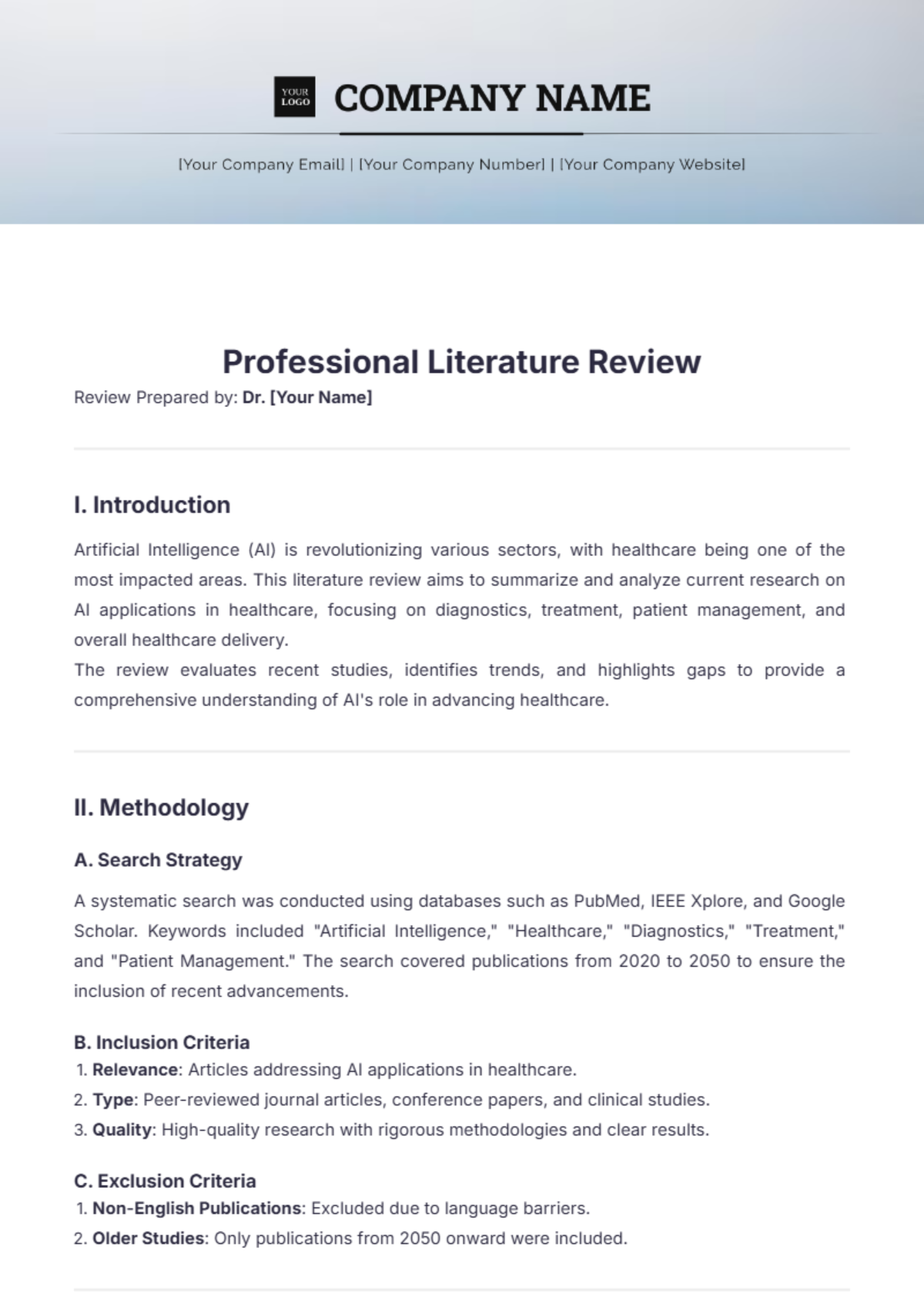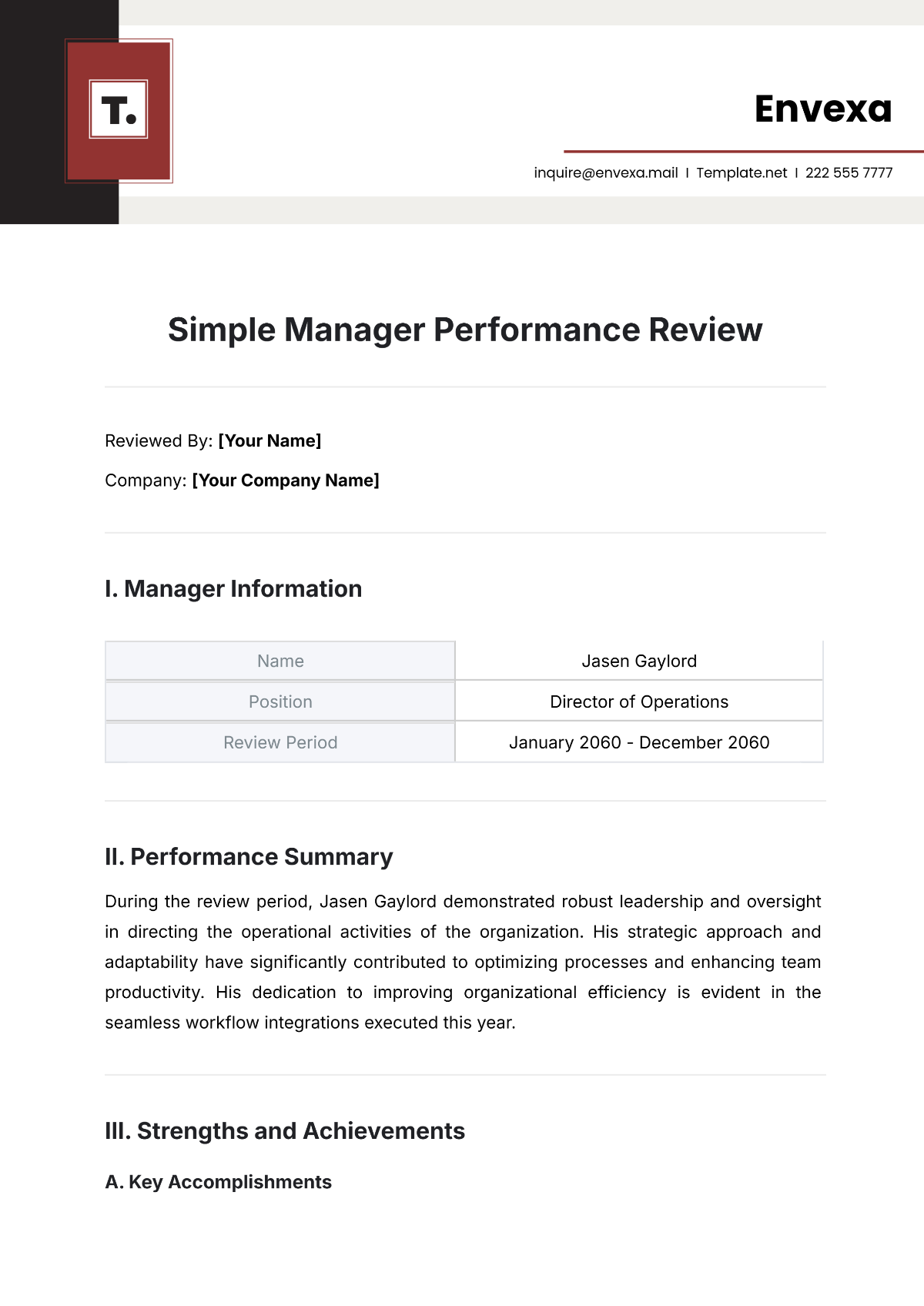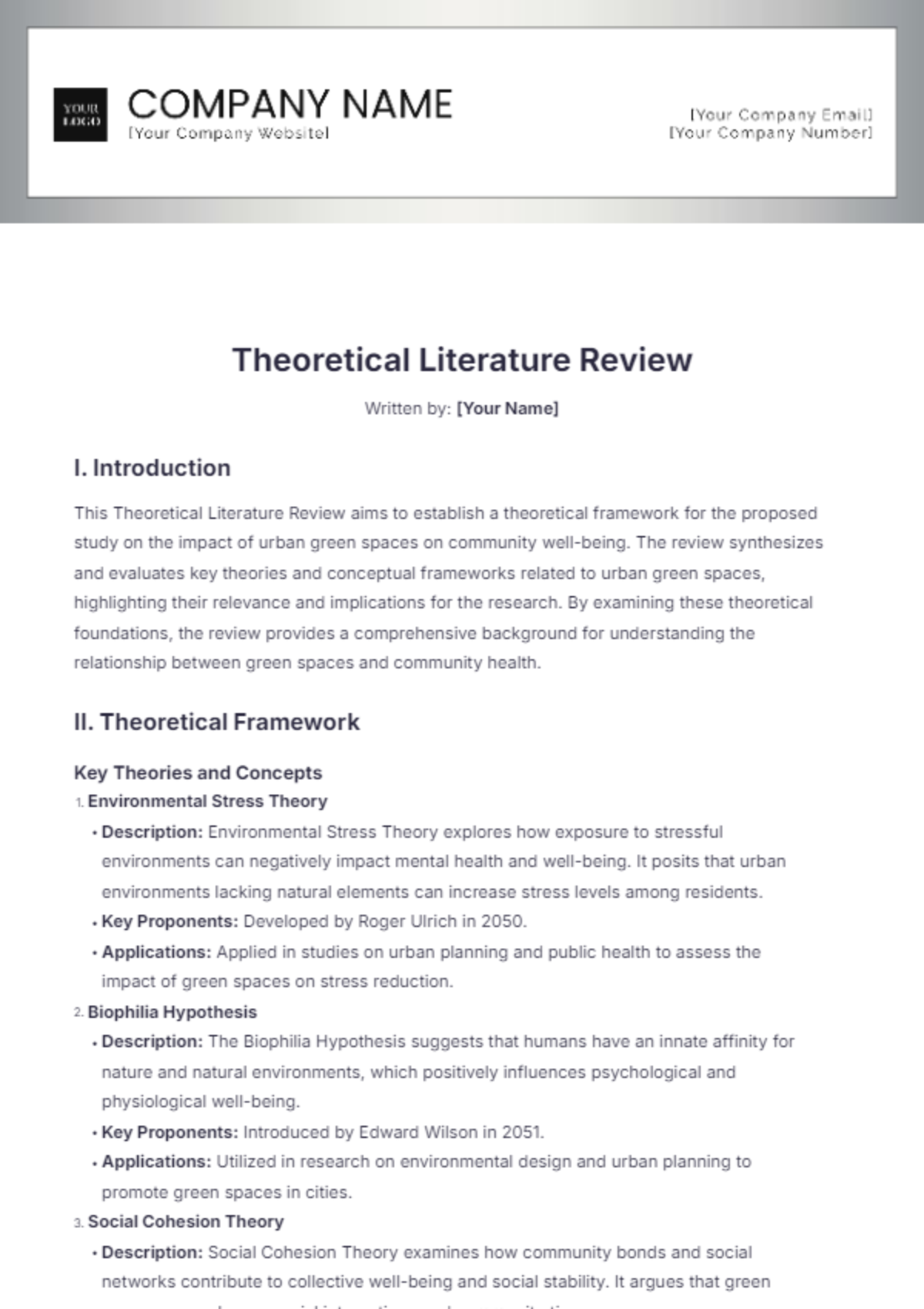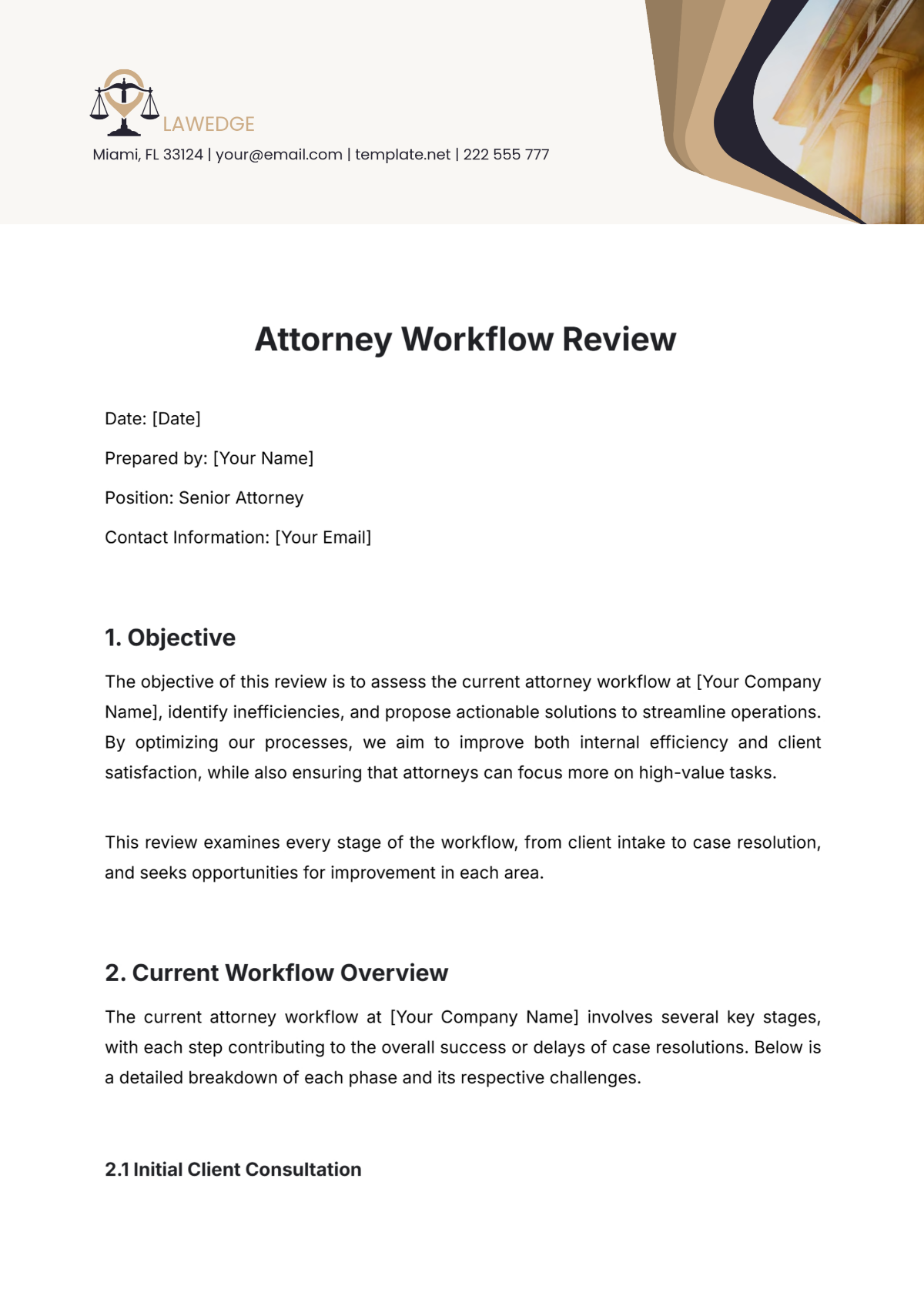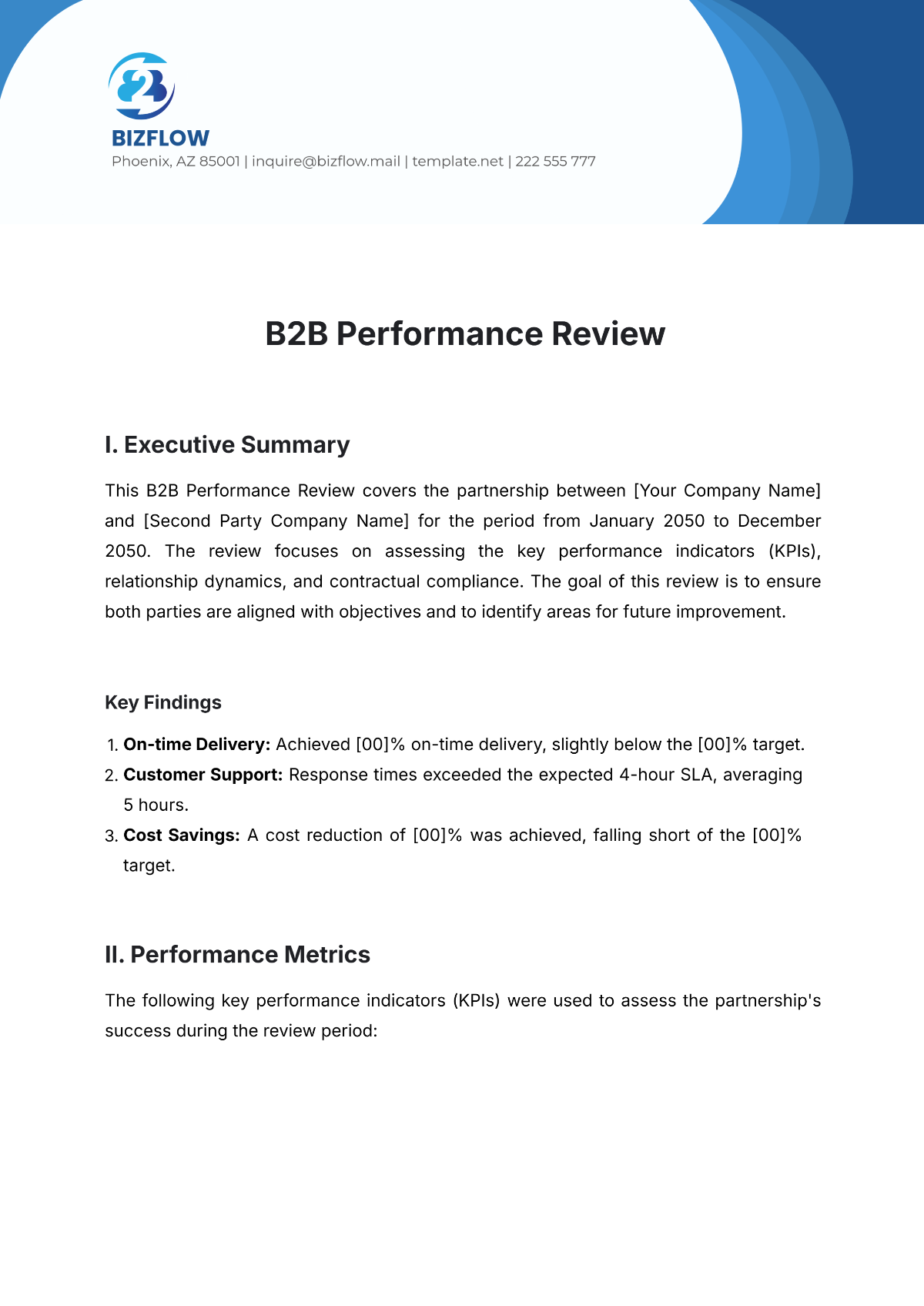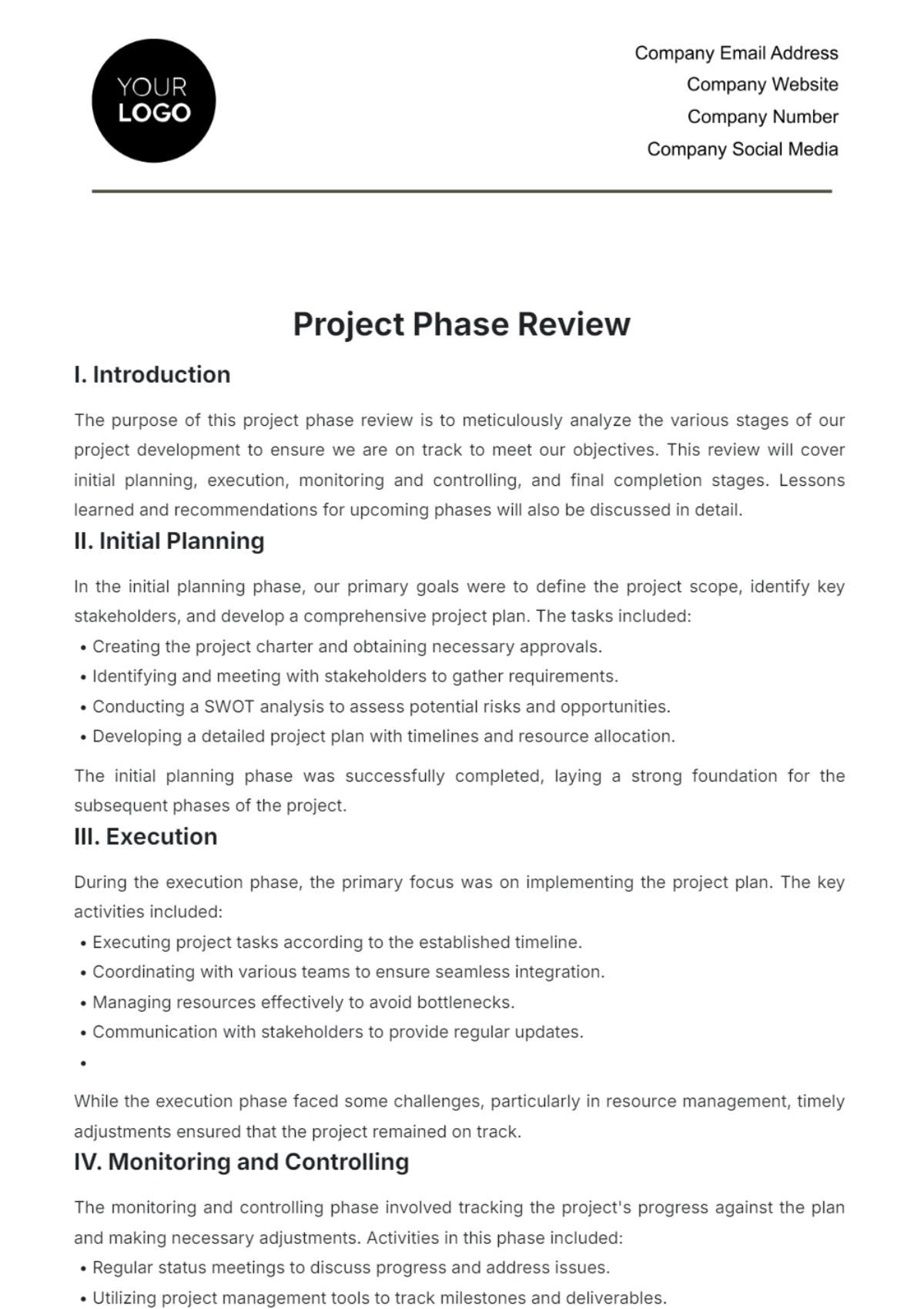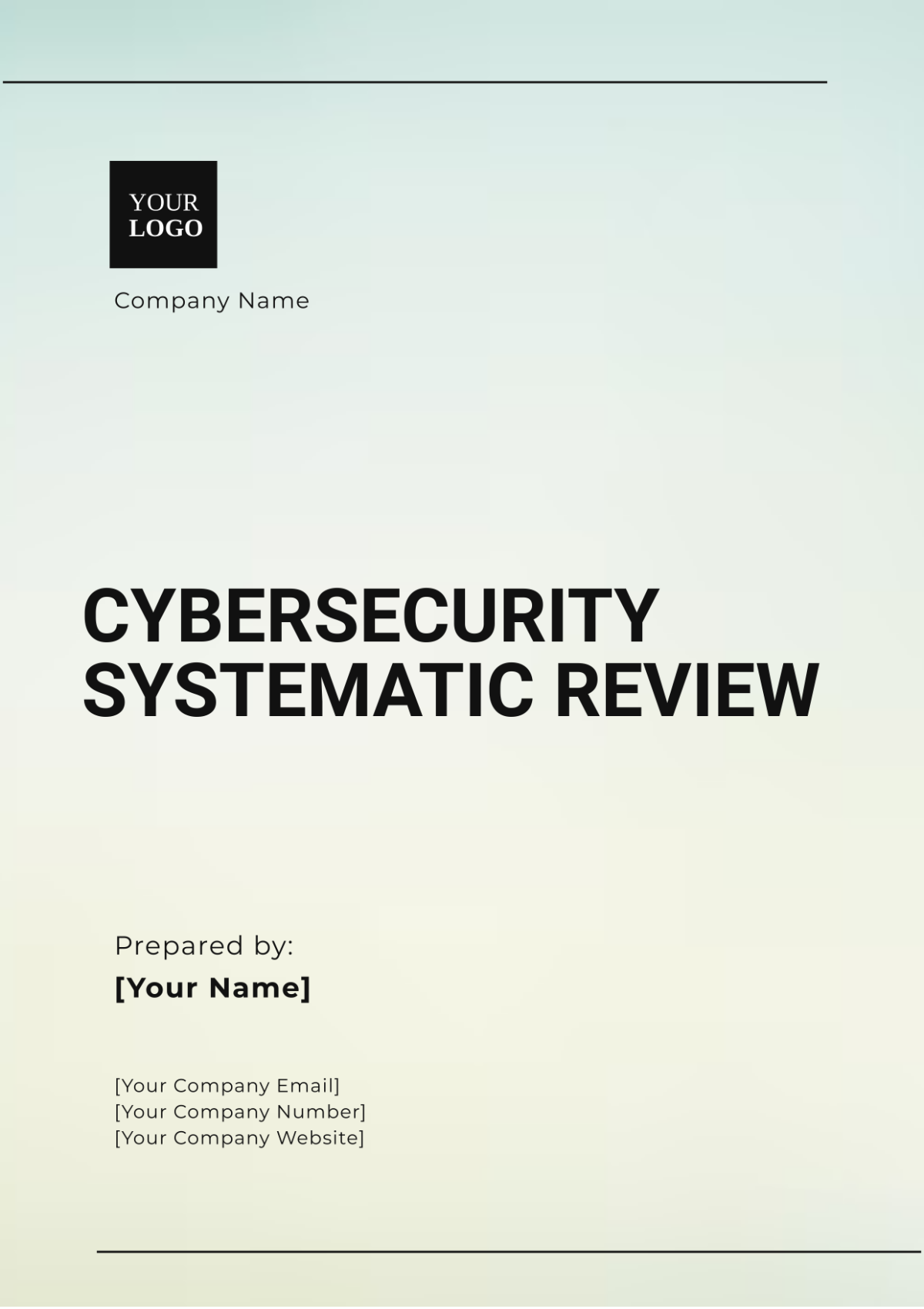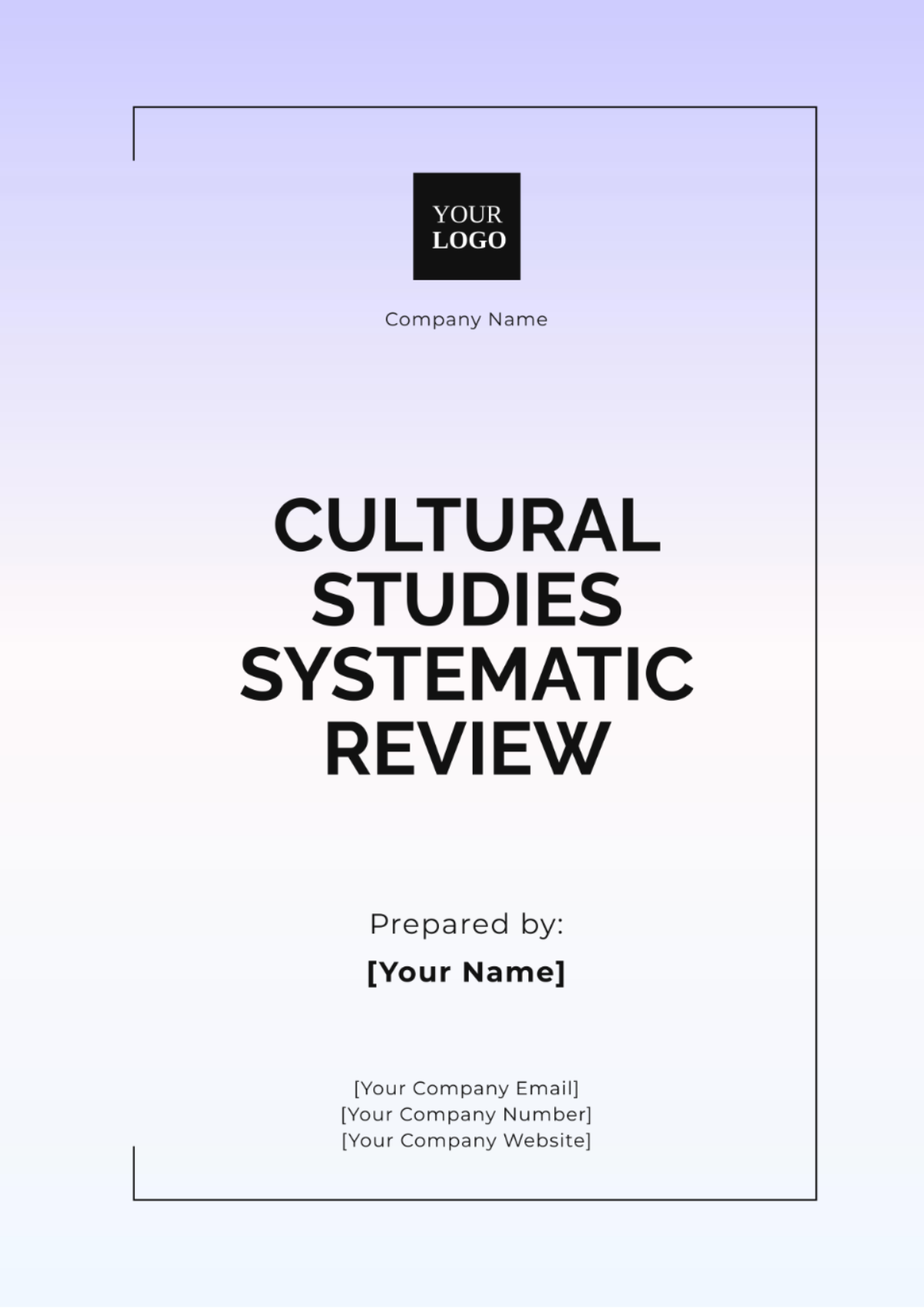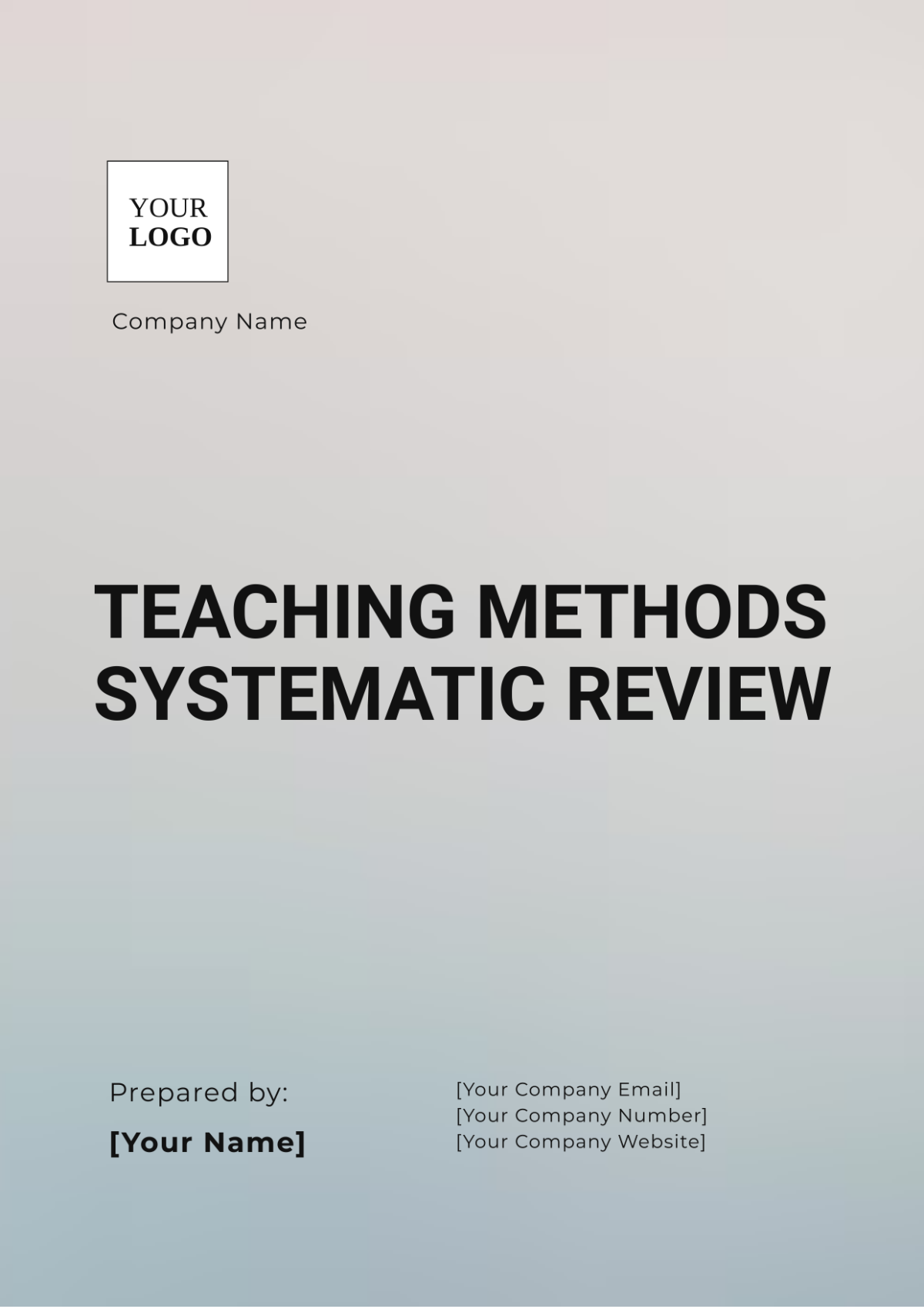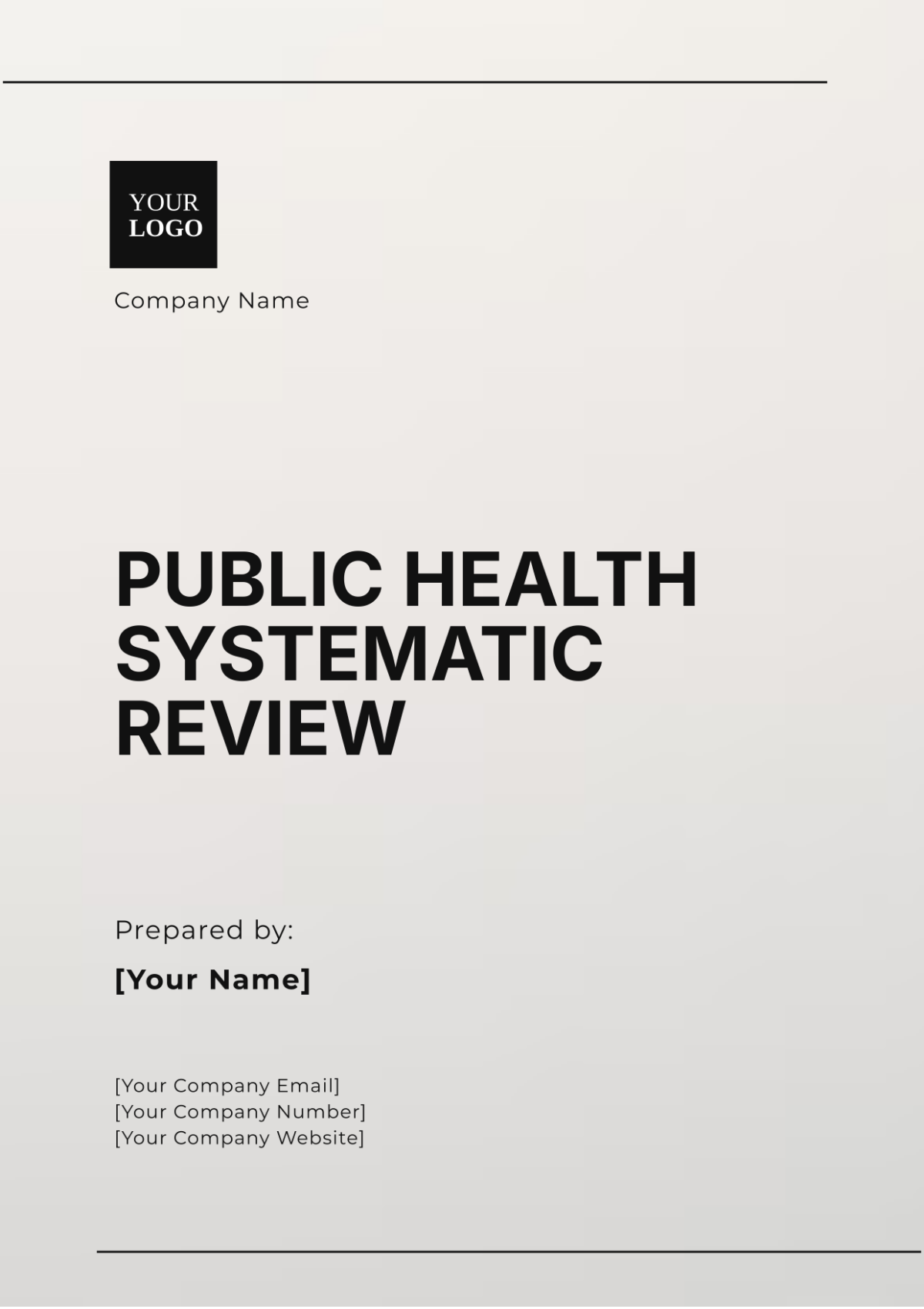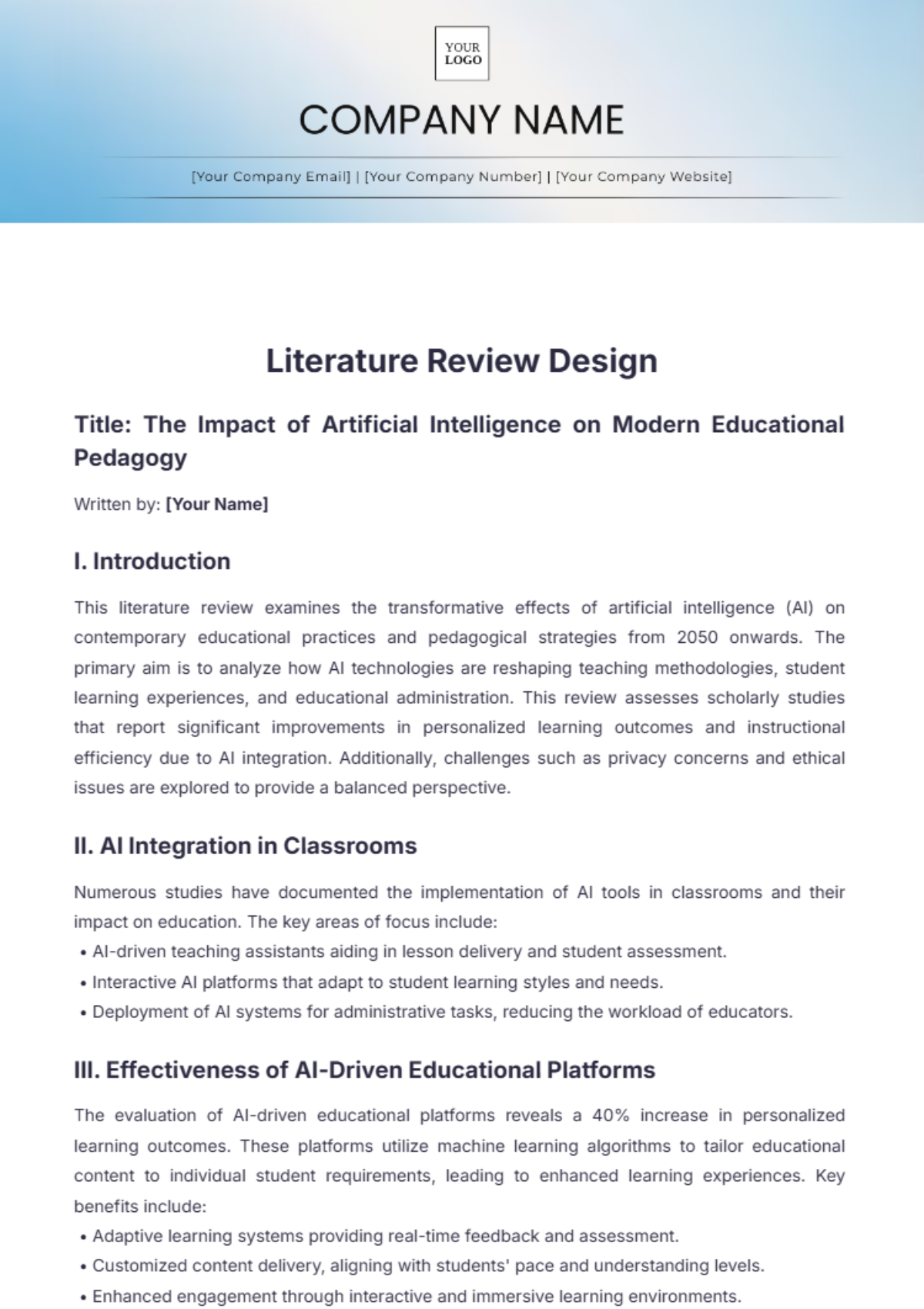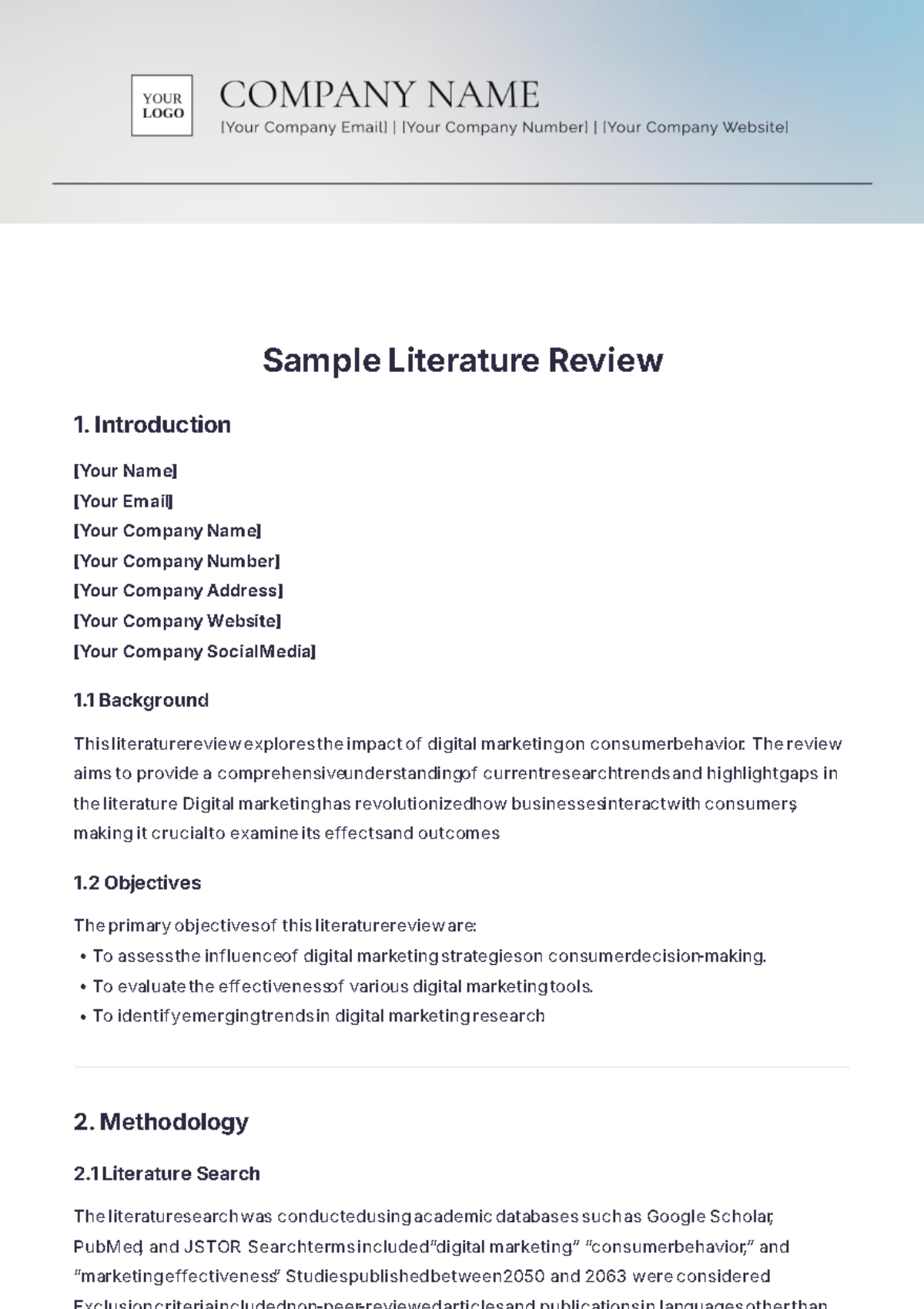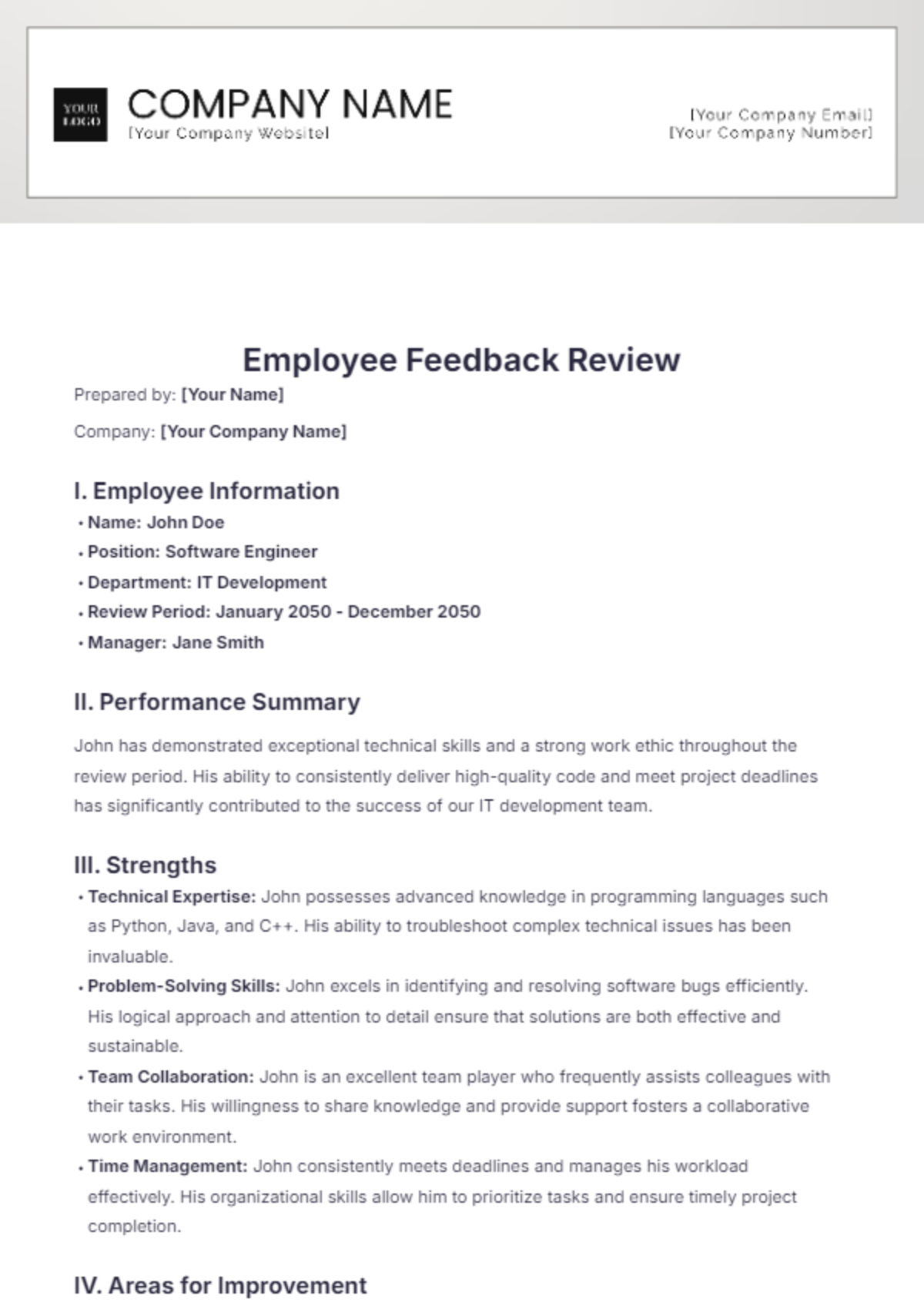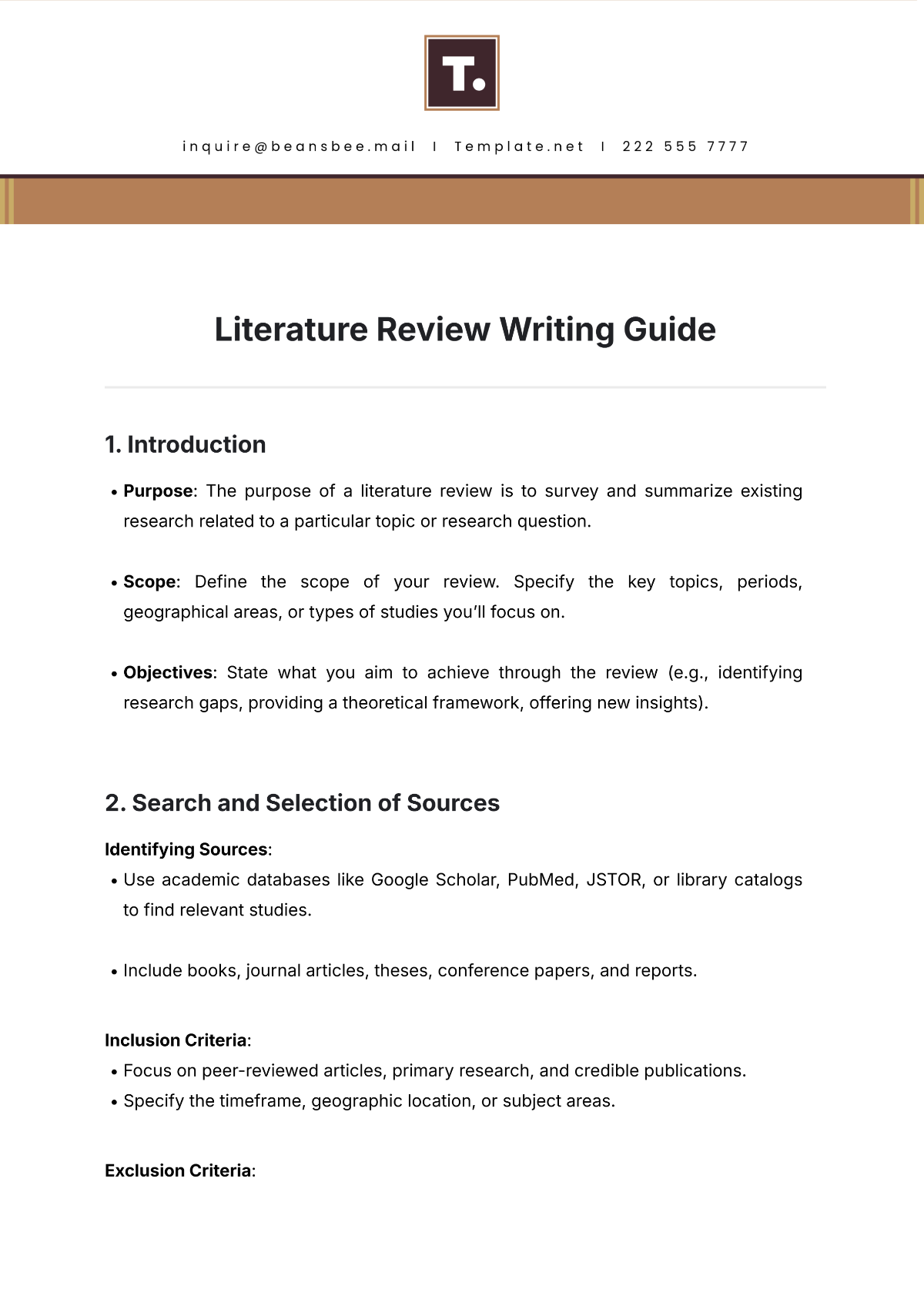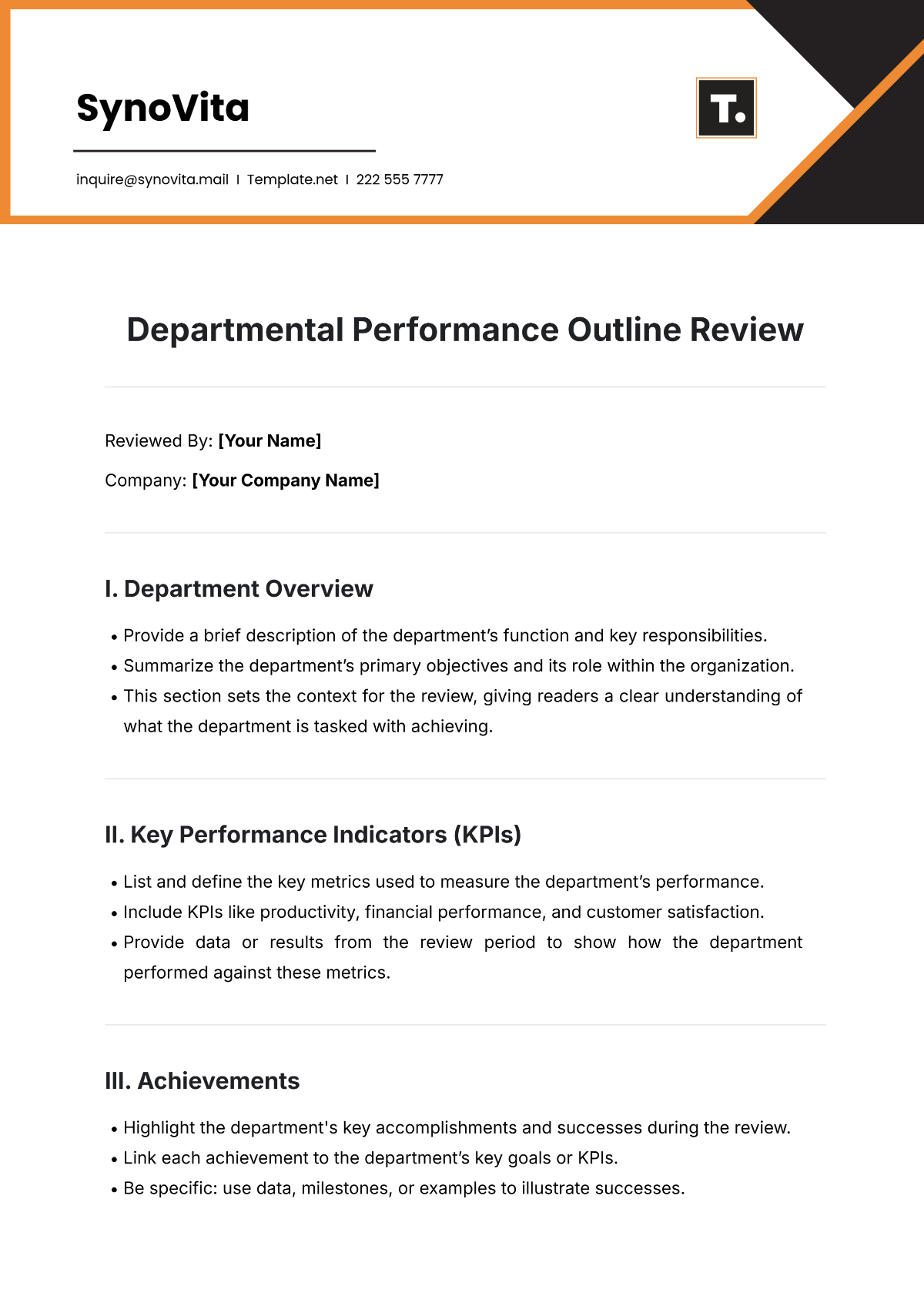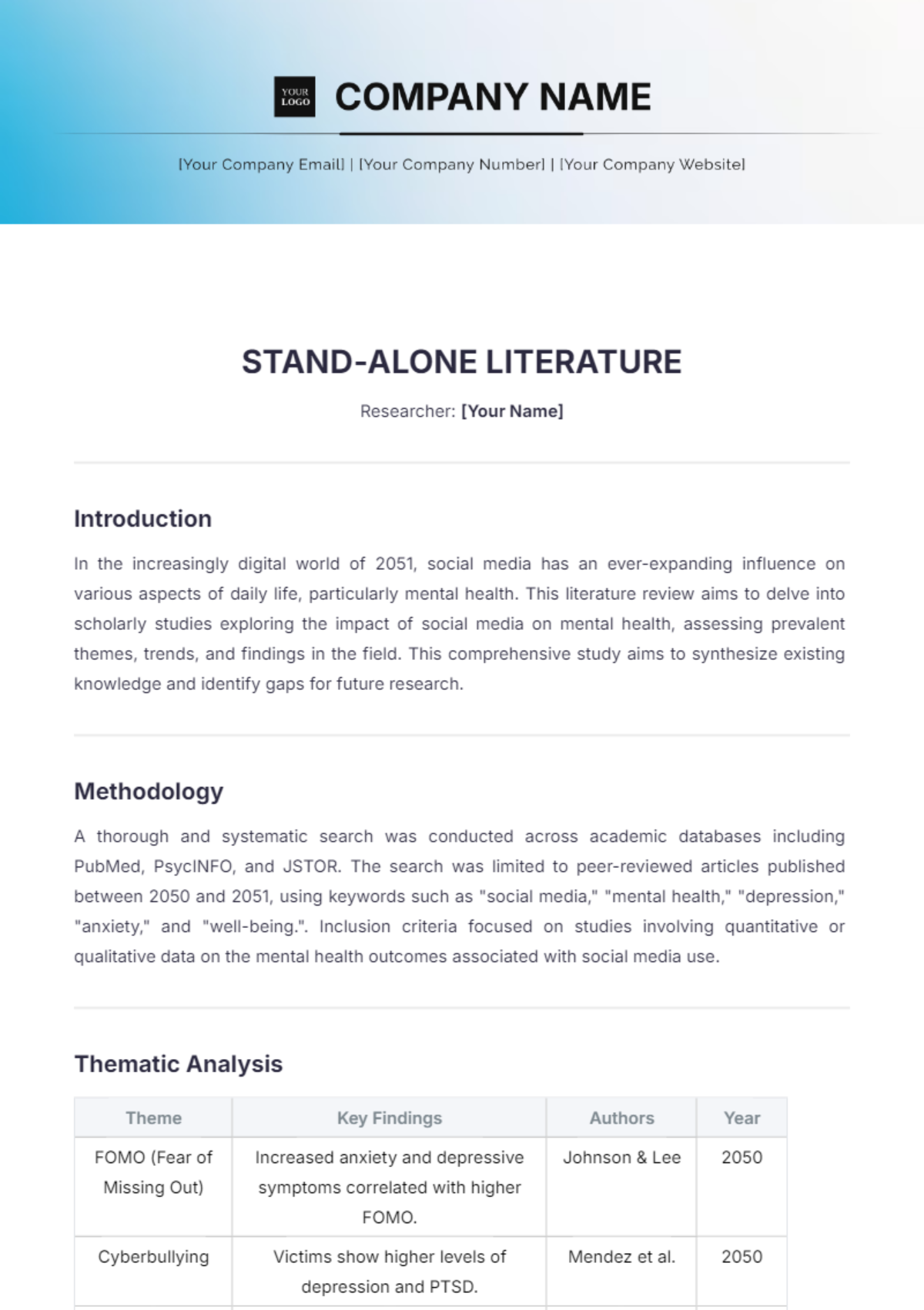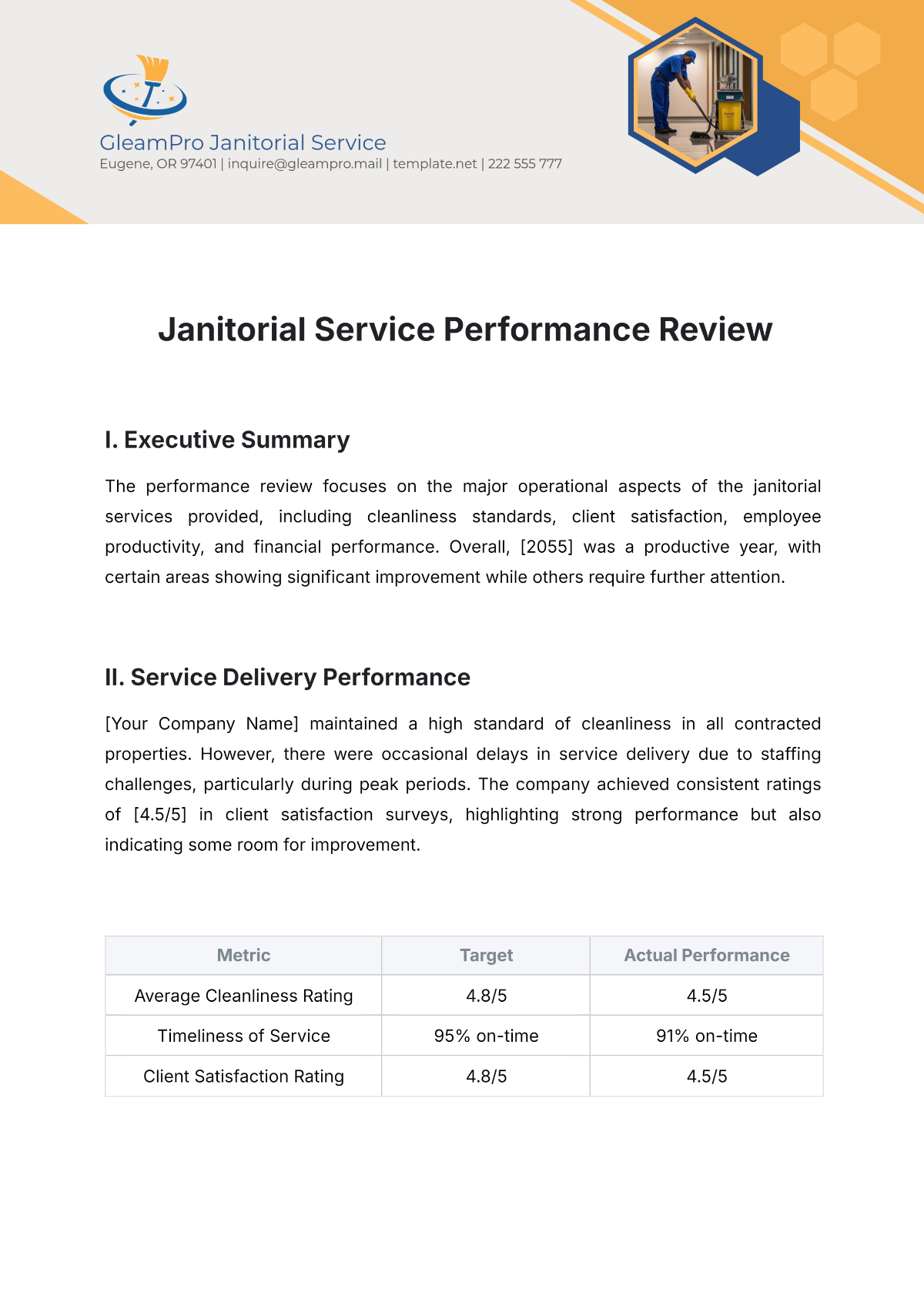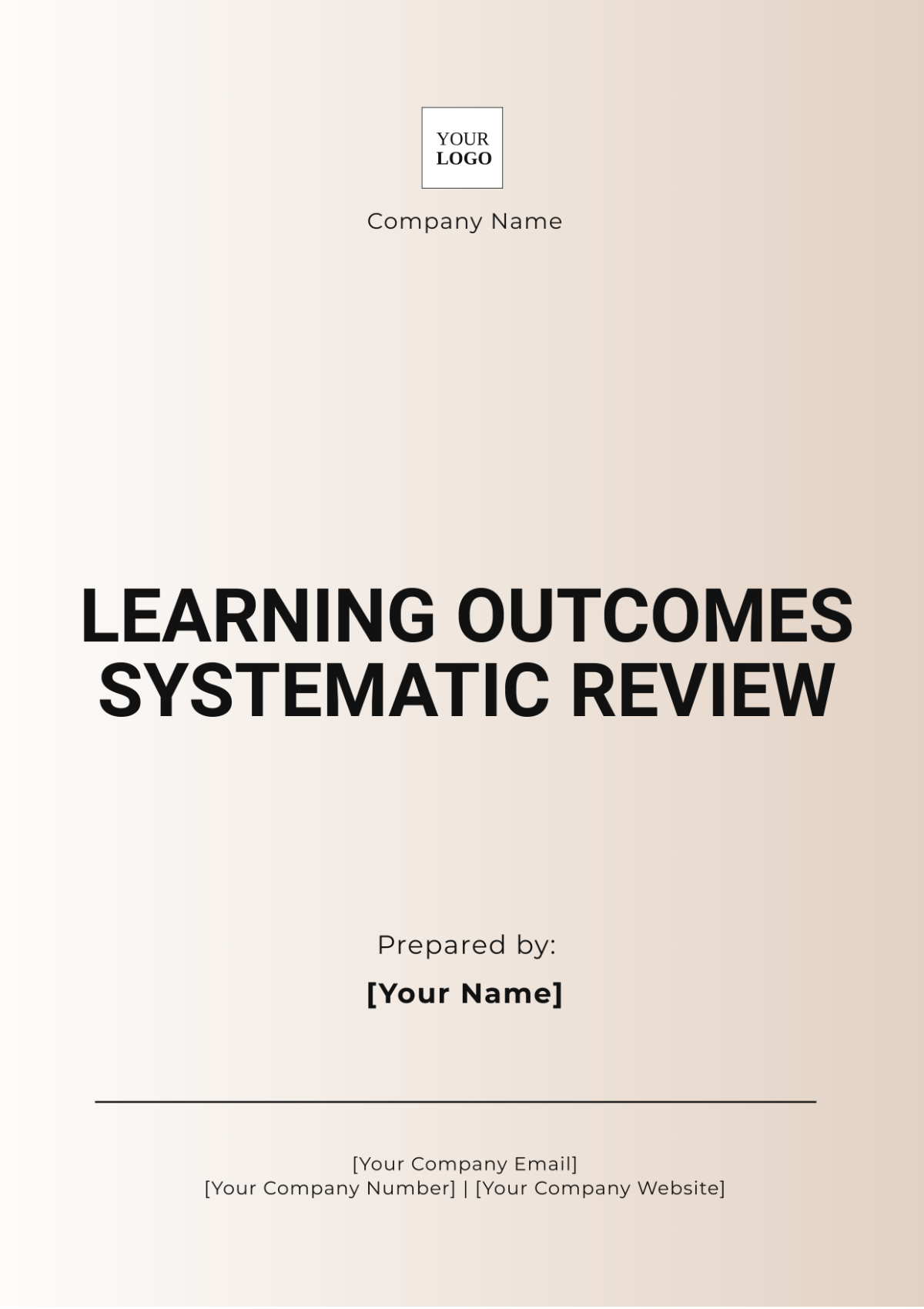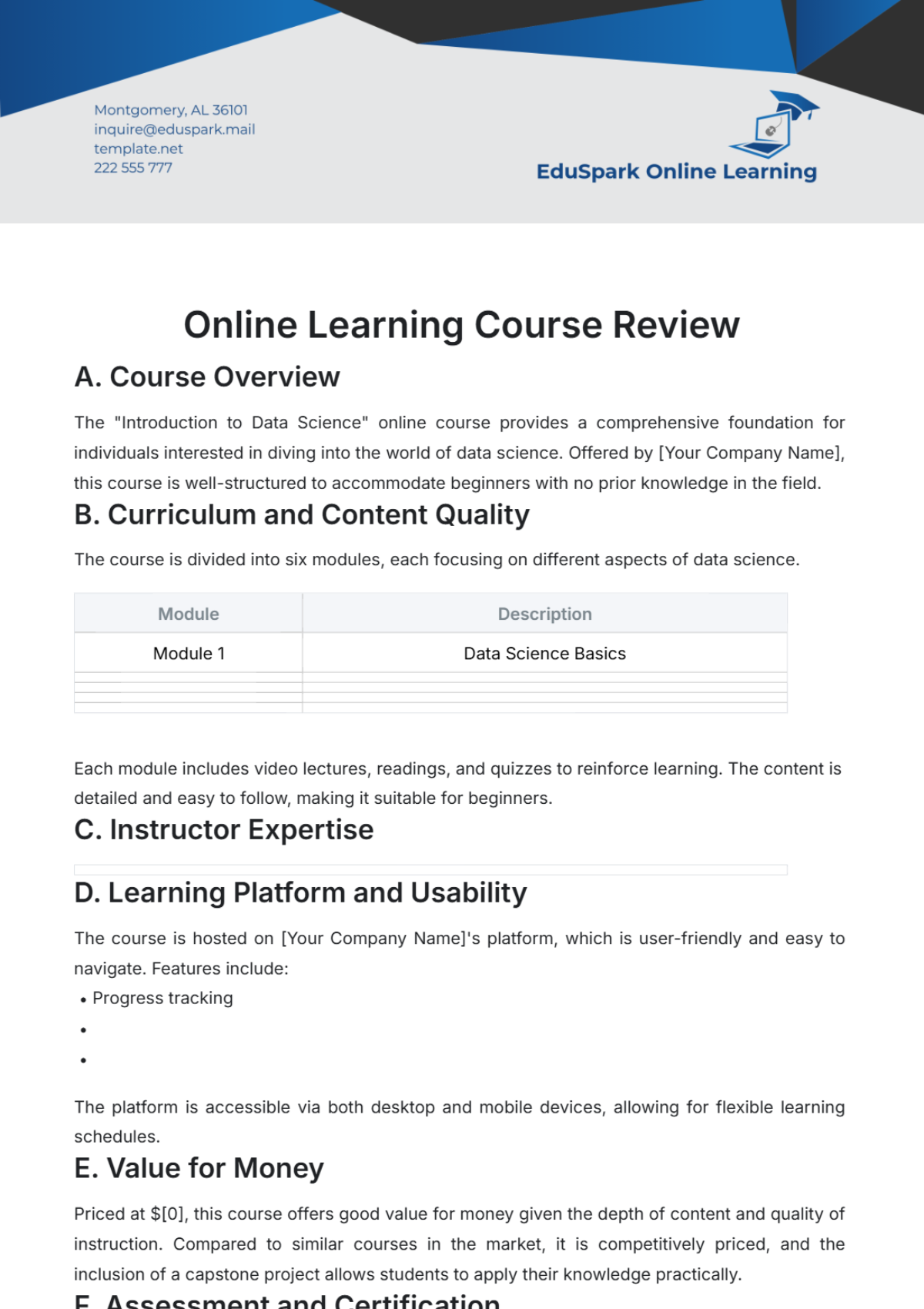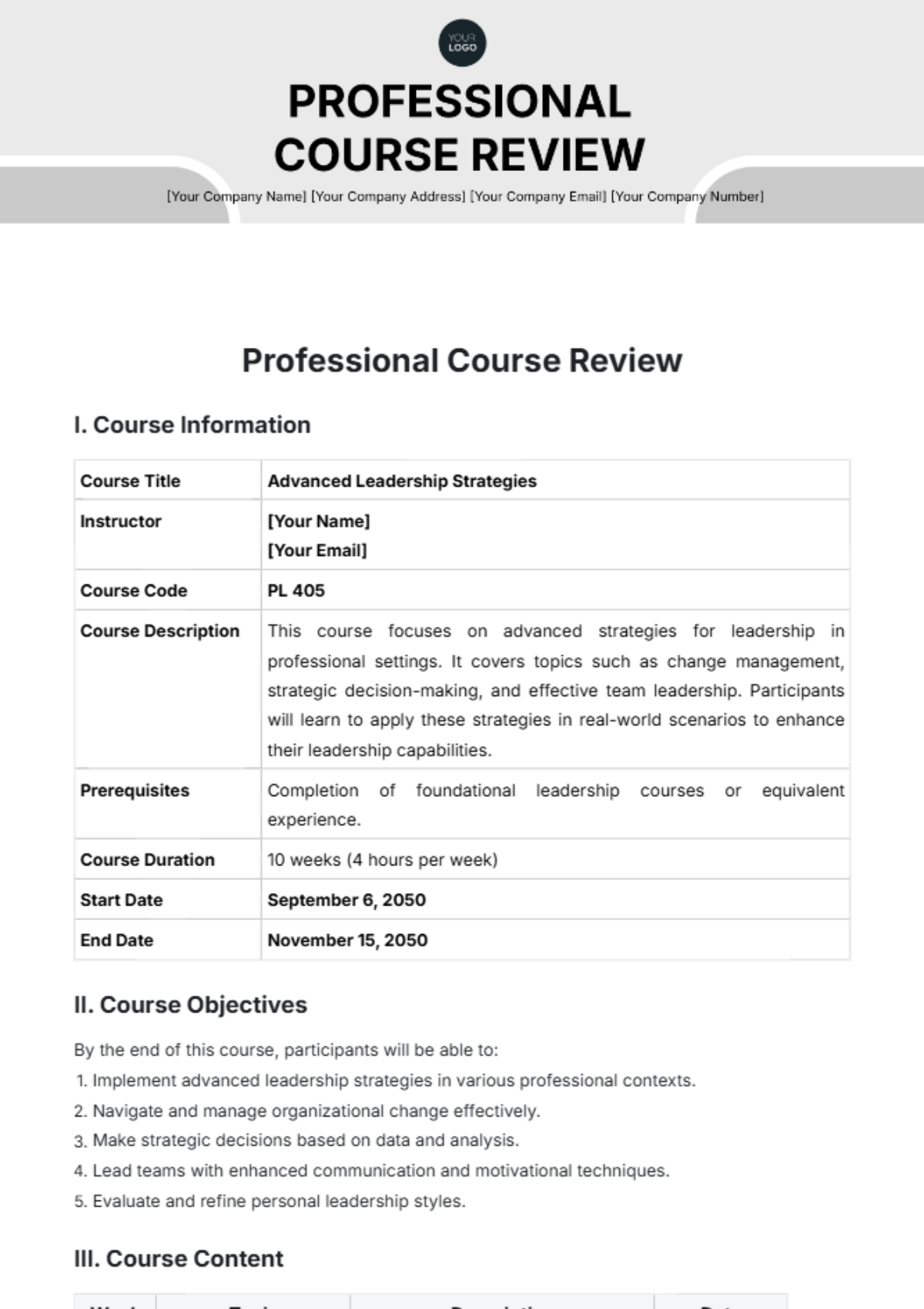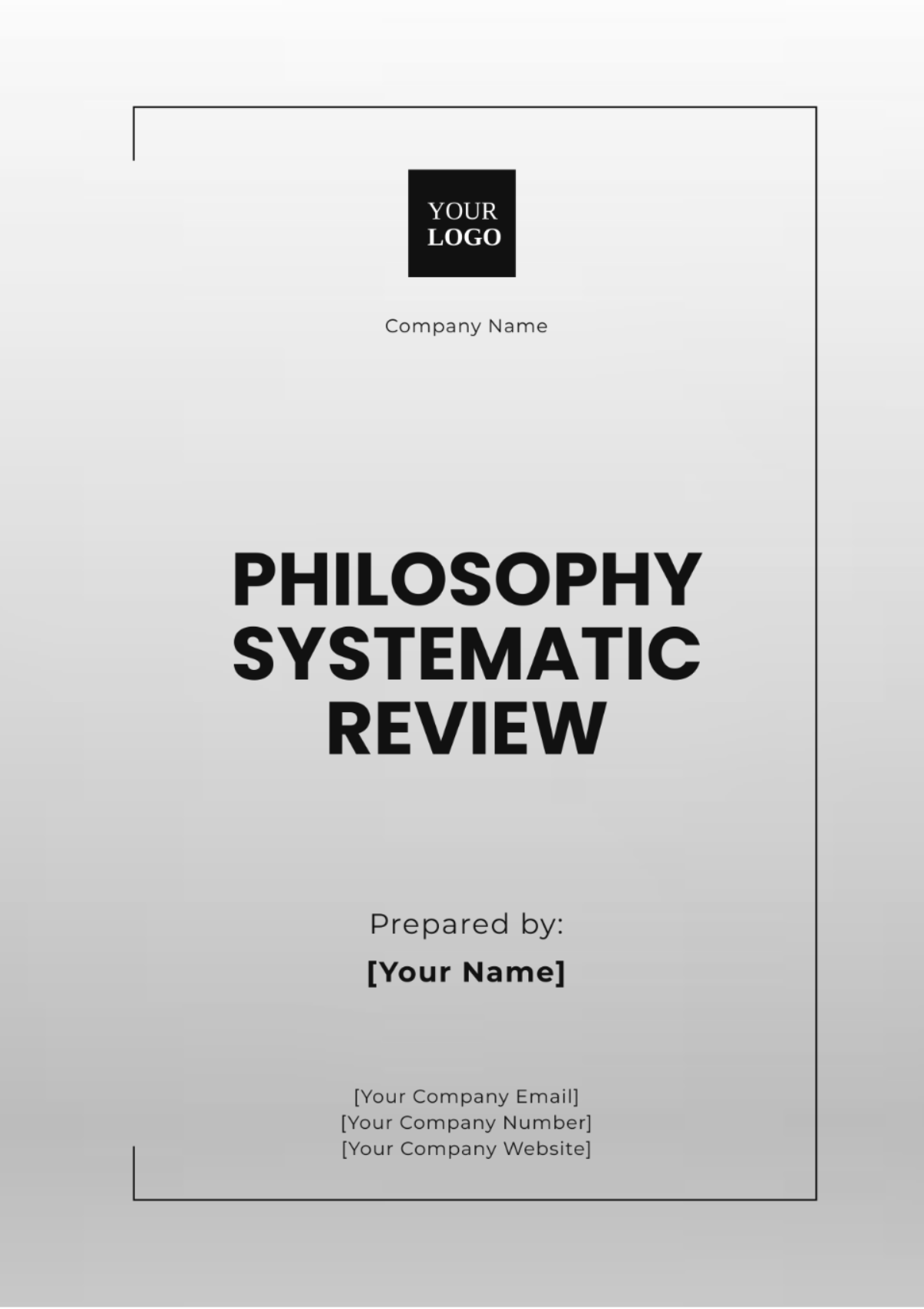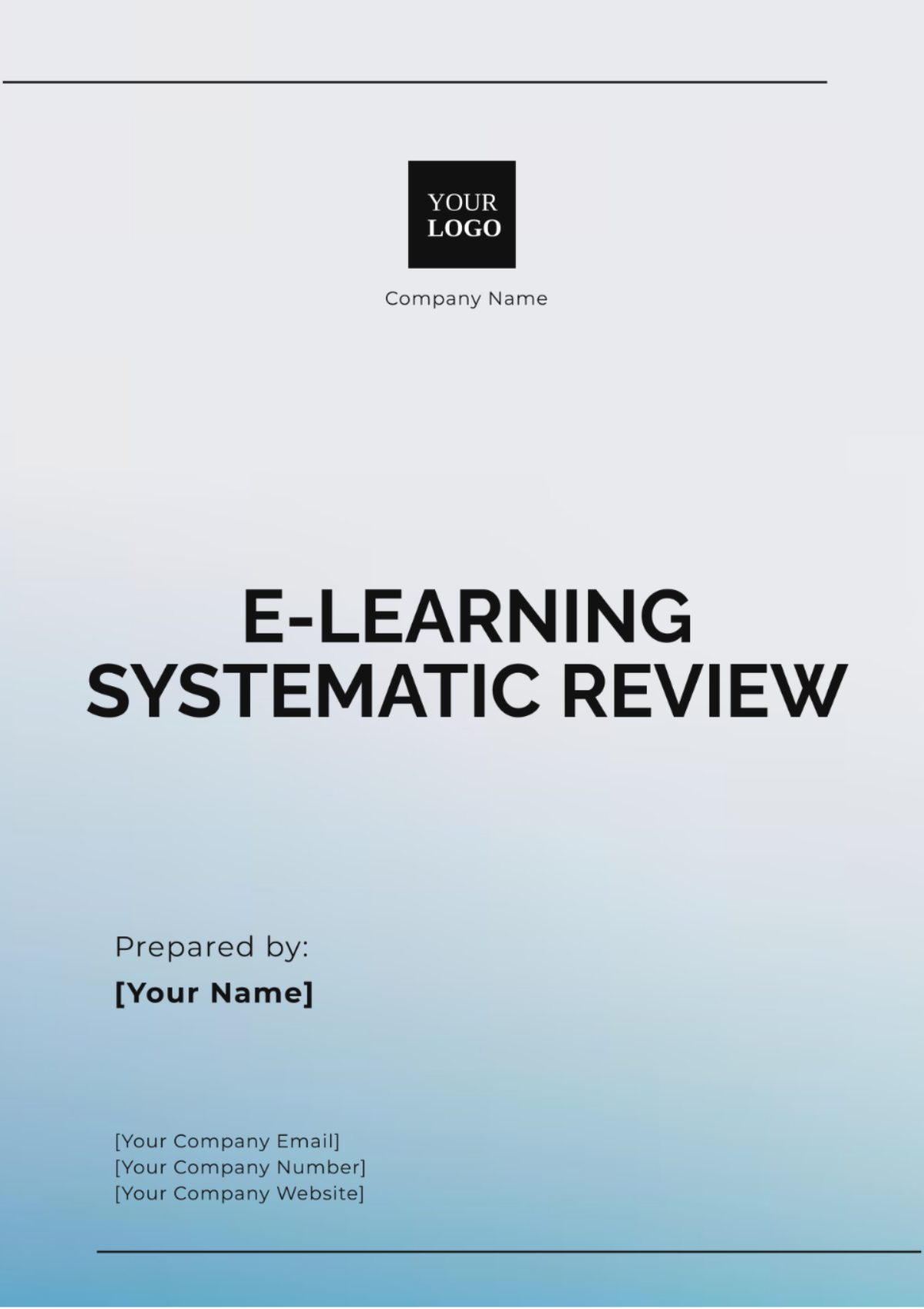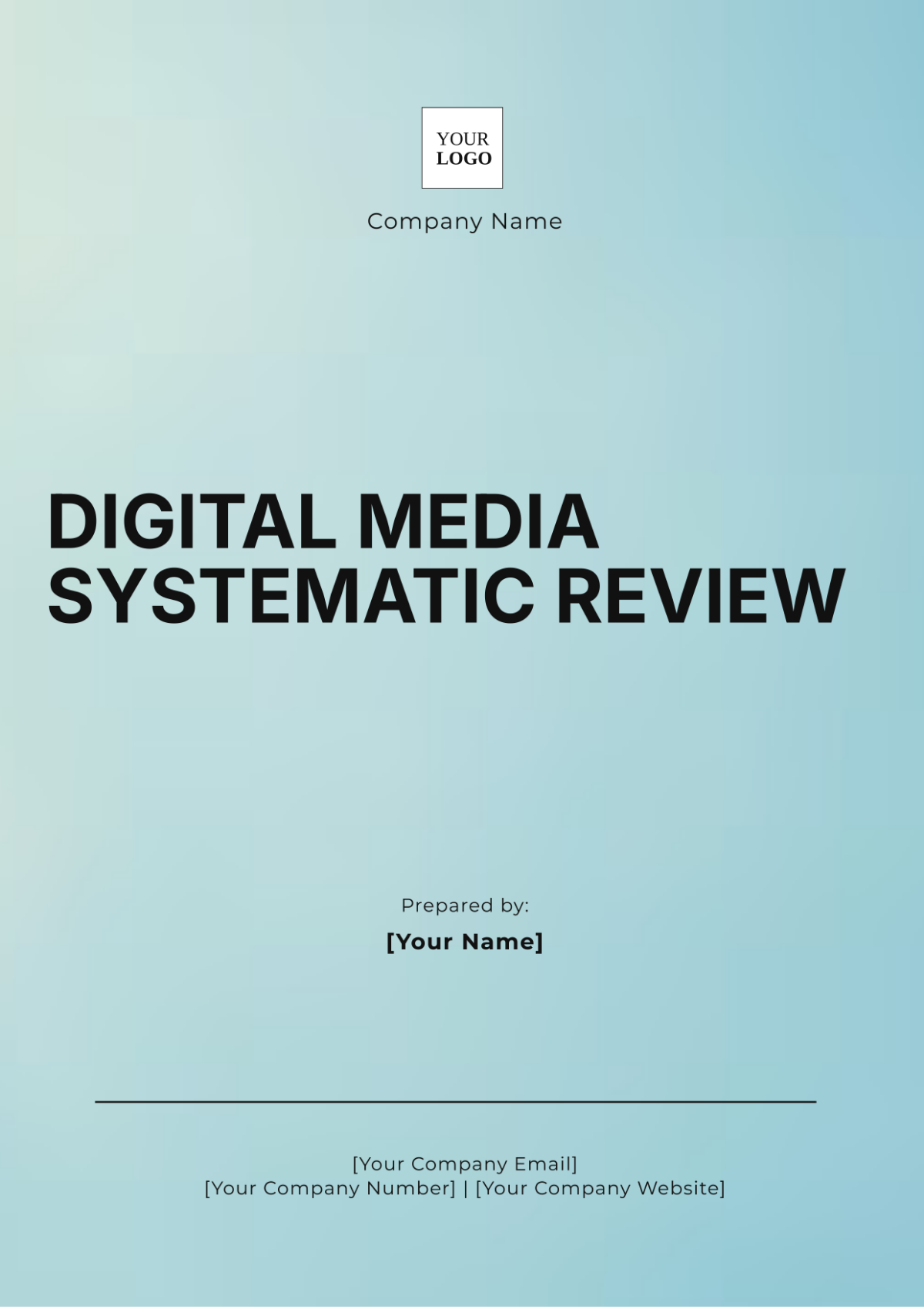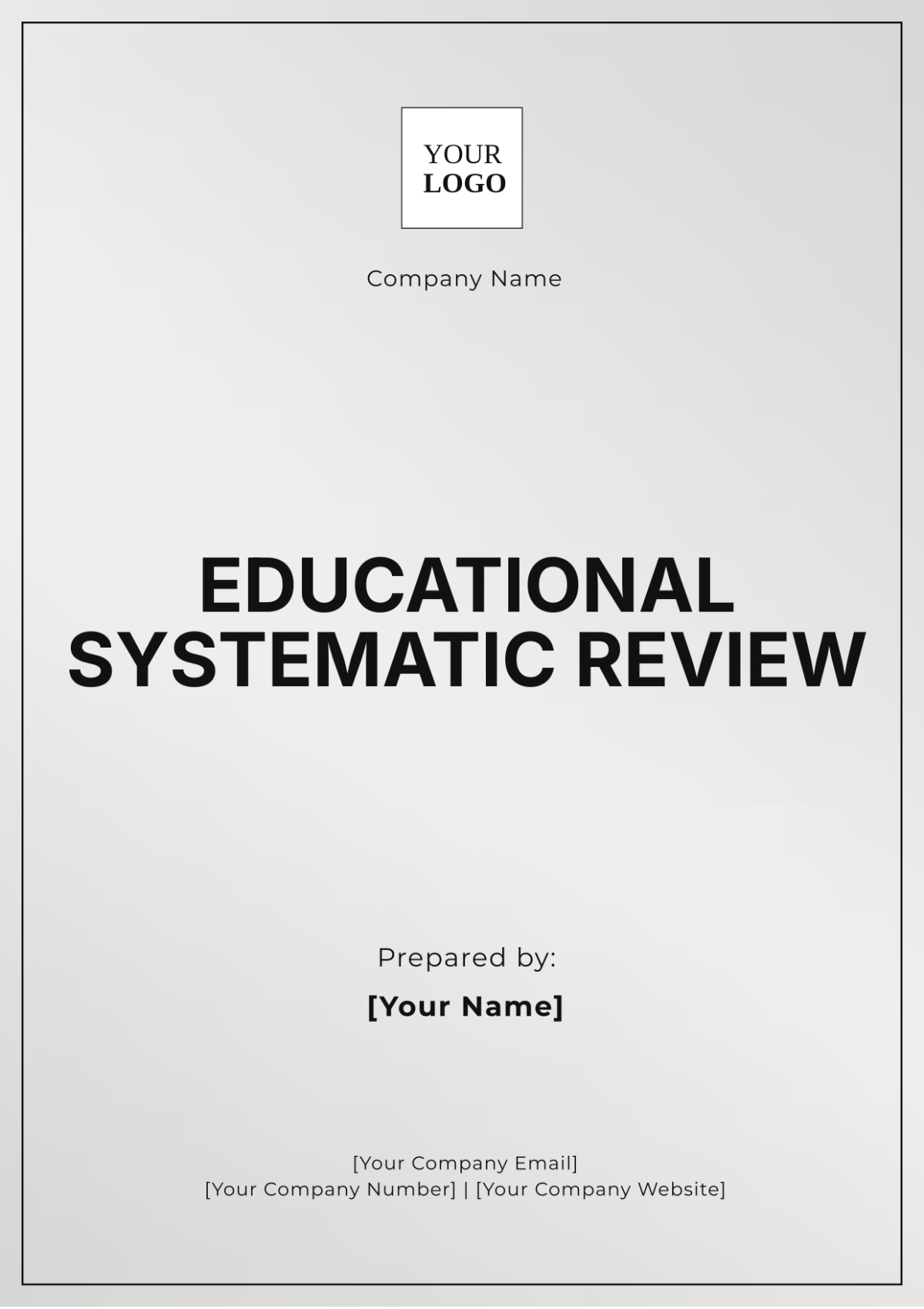E-learning Systematic Review
Prepared by: [YOUR NAME]
Date: [DATE]
I. Introduction
E-learning has emerged as a pivotal innovation in education, transforming traditional classroom learning into a dynamic digital environment. This systematic review aims to provide a comprehensive and structured analysis of existing research studies related to e-learning. The purpose of the review is to synthesize findings from multiple sources to offer an evidence-based overview of the effectiveness, challenges, and trends in e-learning. Key areas of focus include digital learning tools, instructional strategies, and learner outcomes.
II. Objectives/Research Questions
The primary objectives of this systematic review are to:
Evaluate the effectiveness of e-learning in various educational settings.
Identify the common challenges faced in implementing e-learning.
Highlight emerging digital learning trends and innovations.
Assess the impact of e-learning on learner outcomes.
Key research questions include:
How effective is e-learning compared to traditional learning methods?
What are the major challenges encountered in e-learning environments?
What innovative tools and strategies are being used in e-learning?
What effects does e-learning have on learner engagement, retention, and performance?
III. Methods
A rigorous approach was adopted to ensure the accuracy and reliability of the review. Key steps included:
Search Strategy: Comprehensive searches were performed across multiple databases such as PubMed, ERIC, and Google Scholar, using keywords like "e-learning," "digital learning," "online education," and "instructional strategies."
Inclusion/Exclusion Criteria: Studies were selected based on their focus on e-learning in educational settings, peer-reviewed status, and publication within the last decade. Excluded were articles not available in full text, non-English studies, and those focusing solely on corporate training.
Data Extraction: Data was carefully collected from the selected studies, covering various important aspects like study design, sample size, interventions used, observed outcomes, and key findings.
Data Analysis: A comprehensive thematic synthesis was used to analyze and collate data from various studies, revealing overarching patterns and recurring themes for a deeper understanding of the findings.
IV. Results
The comprehensive analysis of the studies that were included in the review brought to light several significant findings.
Effectiveness: E-learning was generally found to be as effective, if not more effective, than traditional learning methods. Improvements were noted in learner motivation, retention rates, and performance.
Challenges: Technological barriers, such as inadequate access to devices and reliable internet, and resistance from educators and students were common challenges.
Trends and Innovations: Notable trends include adaptive learning technologies, gamification, and a focus on student-centered learning. Learning Management Systems (LMS) and mobile learning apps are increasingly popular.
Learner Outcomes: Key factors like increased participation, improved adaptability, and tailored learning led to effective, personalized education and a flexible learning environment.
V. Discussion
The results of this review underscore e-learning’s substantial potential to enhance educational outcomes. This potential aligns with findings from other reviews, which similarly highlight e-learning’s benefits in terms of flexibility and accessibility. Despite these advantages, several challenges remain that need addressing for broader adoption and sustained success.
A. Key Findings
Effectiveness: E-learning has shown to be effective, often matching or exceeding the results of traditional learning methods. Its ability to engage learners and improve performance is well-documented.
Challenges: Common obstacles include:
Technological Barriers: Issues such as inadequate access to devices and unreliable internet connections can hinder the effectiveness of e-learning.
Attitudinal Barriers: Resistance from both educators and learners towards adopting new technologies can impede the implementation and success of e-learning initiatives.
B. Implications for Practice
To address these challenges and enhance the effectiveness of e-learning, several actions are recommended:
Institutional Support: Educational institutions must provide robust support for e-learning initiatives, including the development of policies that promote the adoption of digital tools and methodologies.
Training for Educators: Comprehensive training programs should be established to help educators effectively integrate e-learning tools into their teaching practices.
Infrastructure Investment: Investing in necessary infrastructure, such as reliable internet access and modern digital devices, is crucial for overcoming technical barriers.
C. Future Research Directions
Examine Long-Term Impact: Conduct studies that assess the sustainability of e-learning benefits over extended periods to understand its long-term effectiveness.
Mitigate Challenges: Explore strategies to address technological and attitudinal barriers, ensuring that e-learning can be adopted more widely and effectively.
VI. Conclusion
In summary, this thorough systematic review provides strong evidence supporting the effectiveness of various e-learning initiatives while highlighting the significant challenges and areas needing improvement. It offers clear recommendations for future research, such as exploring the long-term impacts of e-learning, developing strategies to overcome technological barriers, and investigating emerging trends and innovations in digital learning tools and methods. Only with such targeted research can the full potential of e-learning be harnessed and its limitations effectively tackled.
VII. References
Smith, A., & Johnson, L. (2051). Advancements in E-Learning Technologies: A Comprehensive Review. Journal of Digital Education Innovations, 12(3), 45-67.
Brown, M., & Davis, R. (2053). Long-Term Impacts of E-Learning on Student Outcomes: Evidence from a Decade of Research. International Review of Educational Technology, 16(2), 98-115.
Lee, S., & Patel, N. (2055). Overcoming Barriers to E-Learning Adoption: Strategies and Solutions. Educational Technology Perspectives, 20(1), 23-41.




